 By
Professor Karen Canfell
By
Professor Karen Canfell
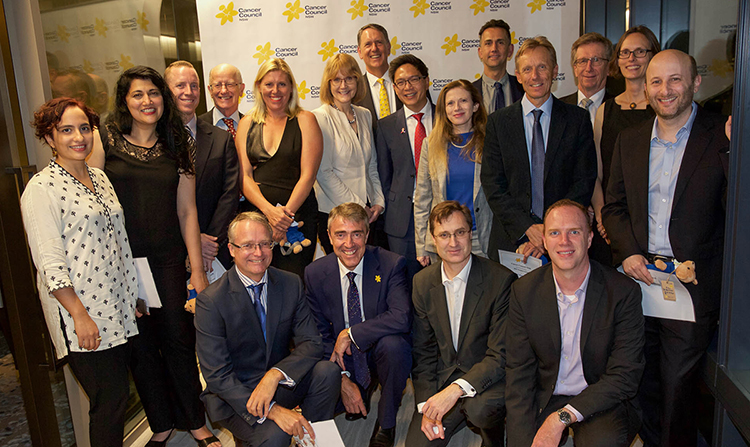
Cancer Council NSW is excited to announce that nearly $6million has been awarded to 15 ground-breaking cancer research projects. The grants help fund future breakthroughs in cancer research, with 15 of Australia’s leading research teams paving the way for new ways to treat the disease.
The project grants were awarded on Wednesday 1 March at Cancer Council NSW’s annual Research Awards, hosted at Westpac’s Barangaroo tower in Sydney.
Cancer Council NSW is proud to fund pioneering new ways to treat cancer – our project grant recipients are all extraordinary scientists who do essential and highly innovative work. The broad range of projects that we fund, across many types of cancers and aspects of the cancer journey, shows Cancer Council NSW’s commitment to work across every area of every cancer.
Cancer Council NSW’s 2017 Project Grant recipients
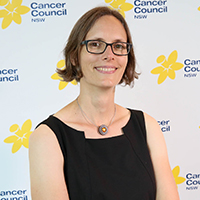 Professor Katharina Gaus
Professor Katharina Gaus
UNSW Sydney
Lymphoma
Boosting the immune system to help it find and kill lymphoma cells
T cells are a type of immune cell that have the ability to recognise and kill tumour cells. However, when tumours have grown too big, these T cells become inactive. This is a major obstacle to using immune-based therapies as a way to treat lymphoma. A better understanding of the mechanisms that lead to the inactivation of T cells is urgently needed so that strategies to overcome this inactivation can be developed. This research project will use a powerful microscope to identify how tumour cells activate T cells. The team will implement a special nanotechnology that could potentially ‘rescue’ these inactivated T cells so that they can continue to find and kill cancer cells. Ultimately, this research could lead to a new form of cancer therapy that targets the immune system with minimal side effects for the patient.
 Professor Gregory Dore
Professor Gregory Dore
UNSW Sydney
Liver cancer
Evaluating the impact of improving hepatitis C treatment on liver cancer rates
The global burden of chronic hepatitis C (HCV) infection is increasing, and in Australia an estimated 230,000 people are living with chronic HCV. Hepatocellular cancer is the most common type of liver cancer, and is often caused by chronic HCV. In Australia, liver cancer rates have escalated over the last decade and this has been driven by an ageing population, and suboptimal treatment uptake. Fortunately, there has been a recent revolution for HCV treatment in the form of oral therapies. These drugs provide a greater than 95% cure rate, can be taken for a short amount of time, and have limited side effects. The Pharmaceutical Benefit Scheme now covers these oral drugs, which is expected to lead to a ten-fold increase in HCV treatment. This project will evaluate the impact of improved HCV treatment on liver cancer incidence and survival.
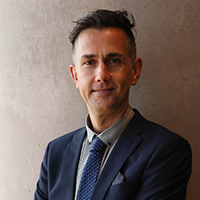 Associate Professor Alexander Swarbrick
Associate Professor Alexander Swarbrick
Garvan Institute of Medical Research
Breast cancer
Exploring whether tiny molecules, called micro RNAS, can be targeted to improve breast cancer treatment
MicroRNAs are tiny molecules produced in every cell in the body. They are powerful controllers of gene expression, and this research team has shown that modulating microRNAs can have a significant therapeutic impact on breast cancer tissue in the laboratory. The researchers believe that microRNAs control the signally pathways that are central to breast cancer survival and drug response, which means that these molecules could be used in new approaches for cancer control. Specifically, this study will explore the behaviour of microRNAs and determine how certain microRNAS could be targeted in combination with chemotherapy to kill breast cancer cells and improve patient outcomes. With their industry partners, the researchers are in a position to be able to progress their findings into studies with breast cancer patients.
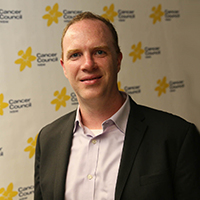 Associate Professor Graham Neely
Associate Professor Graham Neely
University of Sydney
Pancreatic cancer, all cancers
Testing drug combinations for pancreatic cancer which could overcome or prevent treatment resistance
Pancreatic cancer is a particularly devastating form of cancer, with only 6% of patients surviving for 5 years after diagnosis. A chemotherapy drug called gemcitabine is a standard treatment for pancreatic cancer, however drug resistance is common and occurs quickly. This project will determine how drug resistance develops at the genetic level. In detecting the molecular ‘signatures’ that define drug resistance, the researchers will be able to explore ways of making treatment approaches more effective. This information will be used to test combinations of drugs that can overcome cancer drug resistance or prevent the resistance happening in the first place. With a more complete molecular understanding of the mechanisms of drug resistance at the genetic level, it is possible to revolutionise treatment of cancer in Australia and around the world.
 Professor Christopher Ormandy
Professor Christopher Ormandy
Garvan Institute of Medical Research
Breast cancer
Treating a deadly form of breast cancer by turning off the cancer ‘life and death’ switch
Triple negative breast cancer is a subtype of breast cancer that is extremely difficult to treat. Professor Ormandy and his team have found that a certain protein, called MCL-1, acts like a life and death switch for these breast cancer cells. When the protein is activated, it triggers mechanisms that protect the cancer cells from death, helping them to survive and spread. In the laboratory, the researchers have since discovered that it is possible to kill triple negative breast cancers by switching off the MCL-1 protein. The team also found that by turning off this protein, it is also possible to stop breast cancer cells invading through tissue and spreading to other parts of the body. As part of this grant, Professor Ormandy will build on this remarkable finding. His team will further explore the role of MCL-1 in triple negative breast cancer and discover new ways of treating this disease.
 Professor Peter Metcalfe
Professor Peter Metcalfe
University of Wollongong
All cancers
Developing a world first radiation system to ensure the safe delivery of radiation doses to patients
Radiation therapy is used to treat 40% of cancer patients in Australia. The problem with current therapy is that during treatment, the tumours are moving. Professor Peter Metcalfe and his team have found that they can follow the tumour with a new radiation machine, called the MRI-linac, but it is impossible to check whether the radiation dose is correct and safe for the patient. To solve this problem, the team is perfecting a new radiation dosimetry system that could be operated with the MRI-linac. The new system’s detector acts as a surrogate for the cancer, which will be imaged and treated as it moves in the body. The clinical sites likely to benefit from MRI-linac are those that need delicate image guidance. These sites are close to critical organs where the patient’s breathing can affect the targeting, including the lung, pancreas, prostate and liver. This world first radiation system will enable the safe delivery of radiation dose to cancer patients treated with the MRI-linac.
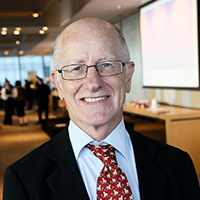 Professor Stephen Ackland
Professor Stephen Ackland
University of Sydney
Rectal cancer
A phase 2 trial testing whether statins, a drug for high cholesterol, can reduce the side effects of rectal cancer treatment.
Rectal cancer is often treated by chemotherapy and radiation before surgery, but if the cancer responds poorly to treatment, many patients will relapse. Previous studies have shown that people taking statin drugs have better treatment responses and fewer side effect during radiation. Statins are a class of drug used to treat high cholesterol. Professor Ackland is leading the SPAR trial, a randomised phase 2 trial which will test whether taking a statin for 3 months (during and after treatment) improves the response of a rectal tumour to radiation and chemotherapy. The trial will also determine whether adding statins to chemo-radiation can reduce the toxicity and side effects of this treatment regime. There are 222 patients from Australia and New Zealand now enrolled in the trial.
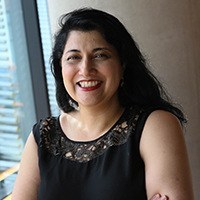 Dr Maya Kansara
Dr Maya Kansara
Garvan Institute of Medical Research
Osteosarcoma
Identifying new ways of targeting the immune system to treat osteosarcomas
The 5 year survival rate of patients with metastatic or recurrent osteosarcoma (a cancer of the bone) is less than 25%. There is an urgent need to identify new treatment options for this cancer. Recent advances in activating the immune system to target tumours have shown promise in many cancer types. Using models of osteosarcoma developed in the laboratory, Dr Kansara and her team will investigate the effectiveness of targeting a specific immune protein, both alone and in combination with chemotherapy. Based on how the osteosarcoma responds, this will identify new strategies of targeting the immune system to treat osteosarcomas.
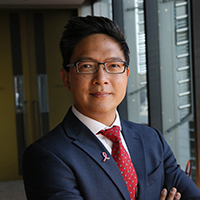 Associate Professor Elgene Lim
Associate Professor Elgene Lim
Garvan Institute of Medical Research
Breast cancer
Studying how well a new treatment combination can stop breast cancer growth and improve patient outcomes
Estrogen is a female hormone that promotes breast cancer growth, and drugs that counteract this effect (known as antiestrogenic drugs) are used to treat the disease. One such drug is tamoxifen, and the research team has discovered that another hormone, progesterone, enhances the antiestrogenic effect of Tamoxifen. This project will provide the critical clinical evidence on the effectiveness of adding progesterone to antiestrogenic therapies in patients with early stage breast cancer. The researchers predict that this combination treatment will be more effective than the current standard of care in stopping tumour growth and improving patient outcomes. The results of this study will allow the researchers to move closer to initiating a clinical trial on a larger group of patients.
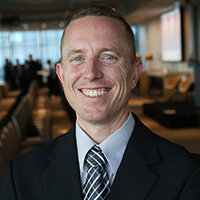 Associate Professor Jeffrey Holst
Associate Professor Jeffrey Holst
Centenary Institute of Cancer Medicine and Cell Biology
Melanoma
Manipulating melanoma cells into using biological pathways that will trigger their own death
The cancer environment is a stressful place. Cancer cells have to cope with low blood flow, leading to insufficient nutrient levels and cellular stress. However, cancer cells also need more nutrients than normal cells in order to grow and spread to other parts of the body. To overcome this, cancer cells develop stress-response techniques to promote their survival. This project will specifically look at melanoma and the pathways used by these cancer cells to survive. The researchers will hijack the stress responses of melanoma, and force the cancer cells to choose a pathways that will lead to their death. With world-leading team and access to patients and clinical samples, the researchers will be positioned to rapidly translate their findings into practice.
 Professor Maija Kohonen-Corish
Professor Maija Kohonen-Corish
Garvan Institute of Medical Research
Colorectal cancer
Identifying the molecular drivers of colorectal cancer so that targeted therapies can be developed
Colorectal cancer is a major health burden, with over 17,000 Australians diagnosed each year and around 4,000 deaths. Despite the introduction of new therapies, metastatic colorectal (colorectal cancer that has spread) is hard to treat successfully. This research team has discovered that the lack of a certain protein, called MCC (‘mutated in colorectal cancer), causes a disruption in the function of other key proteins in the colon, which promotes the development of an invasive type of colorectal cancer. The outcomes of this new study will be the identification of key players involved in the function of MCC and how they could be targeted in cancer treatment. Potential therapies may include small molecular drugs that block the signalling pathways that promote cancer spread, or molecules that restore the key protein interactions that are lost when MCC is absent.
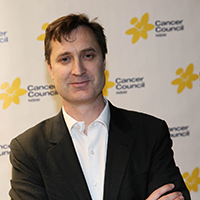 Dr Kenneth Micklethwaite
Dr Kenneth Micklethwaite
University of Sydney
All cancers
Refining a technology which genetically modifies immune cells so they can be used to treat leukaemia
Immune cells that have been genetically modified to include new, cancer-fighting genes can be used to cure cases of leukaemia that are otherwise incurable. However, the technology used to make these immune cells is unable to introduce the more complex genes needed to cure other types of cancer. A new technology, called the PiggyBac system has the ability to make these complex genetic changes, but it has not been adapted for clinical use. The researchers will optimise this system so that it is ready for use in clinical trials. The team will also develop a new system, called PiggyBat, to provide researchers with a choice of established tools that can be used to create cancer-fighting cells. This will ensure the availability of this technology into the future.
Cancer Australia PdCCRS project grants
The following researchers are recipients of a Cancer Australia PdCCRS project grant, co-funded by Cancer Council NSW. Read more about the Priority-driven Collaborative Cancer Research Scheme.
 Dr Elizabeth Hovey
Dr Elizabeth Hovey
University of Sydney
Brain cancer
Testing an alternative treatment for a type of glioma brain cancer, which could be more effective and less toxic than current therapy
Oligodendroglioma is a type of glioma brain tumour occurring mainly in adults, but also affecting children. The standard treatment for oligodendroglioma is radiation followed by a combination of chemotherapy drugs, procarbazine, lomustine, and intravenous vincristine (also known as PCV therapy). In clinical practice, PCV is a complex regimen and is considered more toxic than temozolomide. As a result, some clinicians believe that PCV may be substituted by the less toxic drug, temozolomide, to treat oligodendroglioma. However, there is not currently enough evidence to justify this substitution and this is the focus of Dr Hovey’s work. This study will compare current standard PCV treatment with oral temozolomide chemotherapy with radiation. The team predict that temozolomide treatment will have less side effects and will also be as effective, if not even more effective, than PCV treatment.
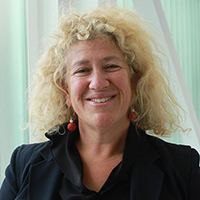 Dr Eva Segelov
Dr Eva Segelov
University of Sydney
Colorectal cancer
A multinational trial on colorectal cancer which will determine whether aspirin can reduce relapse and death rates
Patients with colon and rectal cancer who take aspirin after being diagnosed appear to live longer than those who do not. This needs to be tested in a clinical trial to conclusively determine whether aspirin improves survival without adding significant side effects. Dr Segelov is leading a multinational randomised phase III trial, called the ASCOLT study, to answer this question. This research will compare cancer relapse and survival of people with colorectal cancer who receive aspirin compared to those taking a placebo. ASCOLT is the first randomised study of aspirin for cancer survival and is recognised internationally as the exemplar aspirin trial. If aspirin is shown to reduce cancer relapse and death rates, the results of this trial will change practice across the world, including developing countries, as aspirin is cheap, accessibly and quite safe.
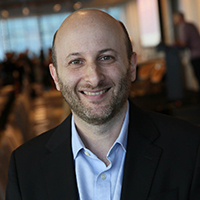 Dr David Ziegler
Dr David Ziegler
UNSW Sydney
Brain cancer
Developing a new therapy to treat diffuse intrinsic pontine gliomas, the most aggressive of all childhood cancers
Diffuse intrinsic pontine gliomas (DIPGs) are the most aggressive of all childhood cancers. Due to their location within the brainstem, these tumours cannot be removed surgically, and they do not respond to chemotherapy. New and innovative treatment approaches are urgently needed, and this is the focus of Dr Ziegler’s project. His team have found that a synthetic retinoid (a compound derived from vitamin A) acts powerfully against DIPG cells, which have now been grown for the first time in a laboratory. The synthetic retinoid is well tolerated in children, but has never before been tested in DIPG. This represents a promising step towards developing a therapy for DIPG, and this project will determine the best combination of treatment strategies to eradicate DIPG cells. Ultimately, the researchers hope to rapidly translate these findings into the clinic to directly benefit children with DIPG.